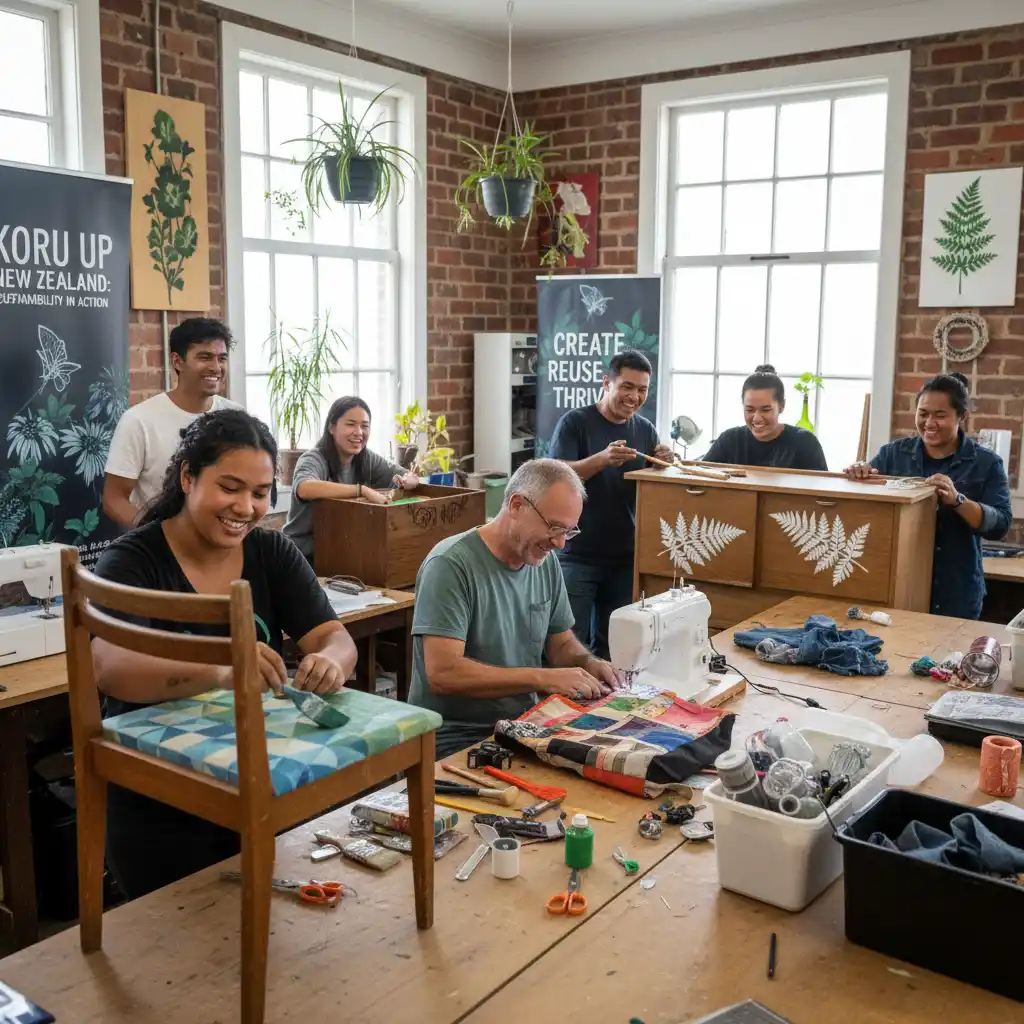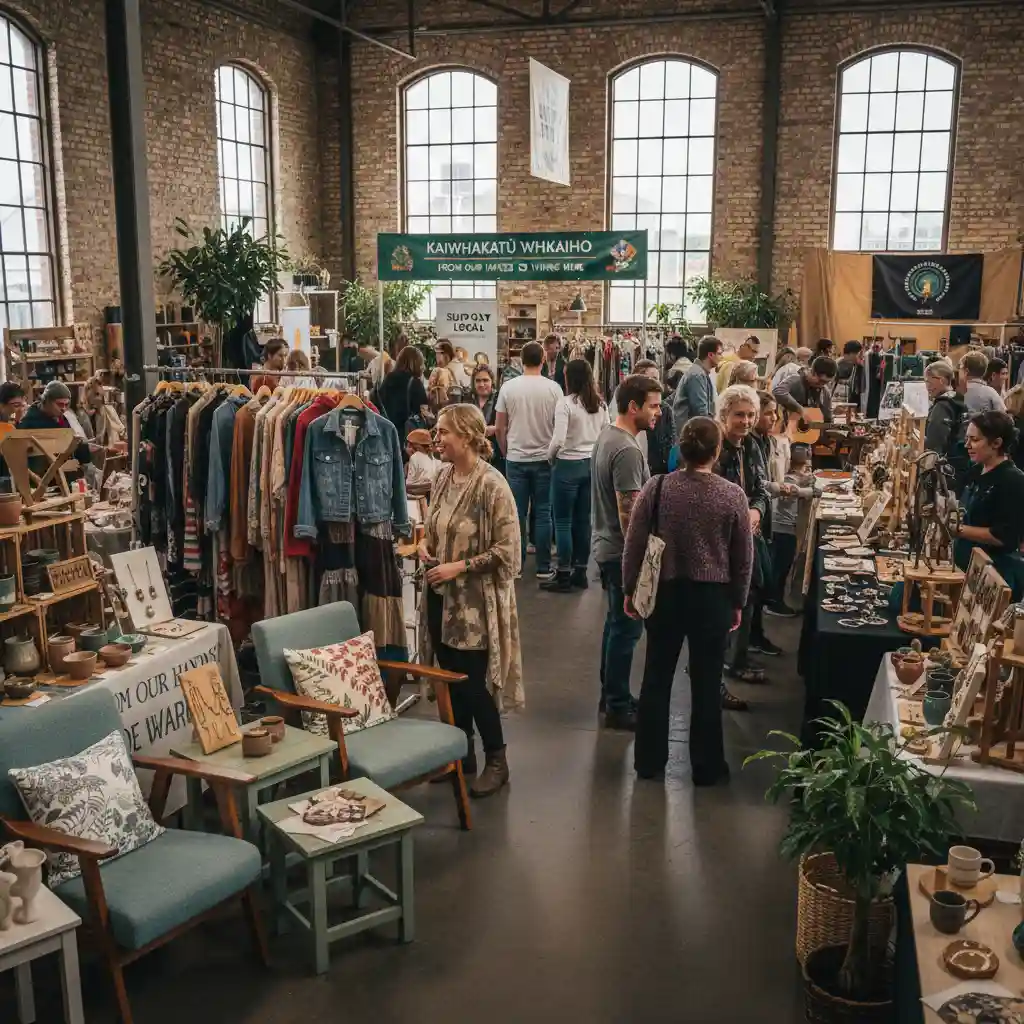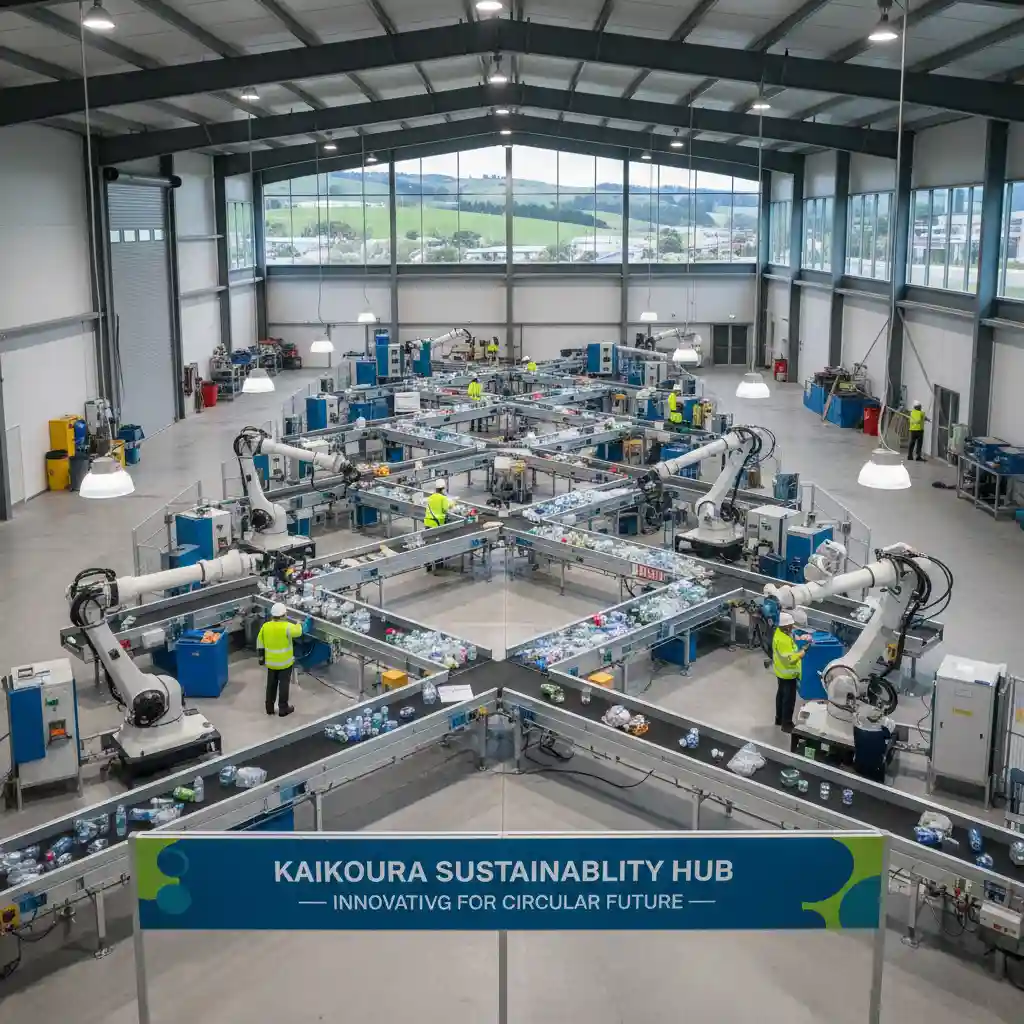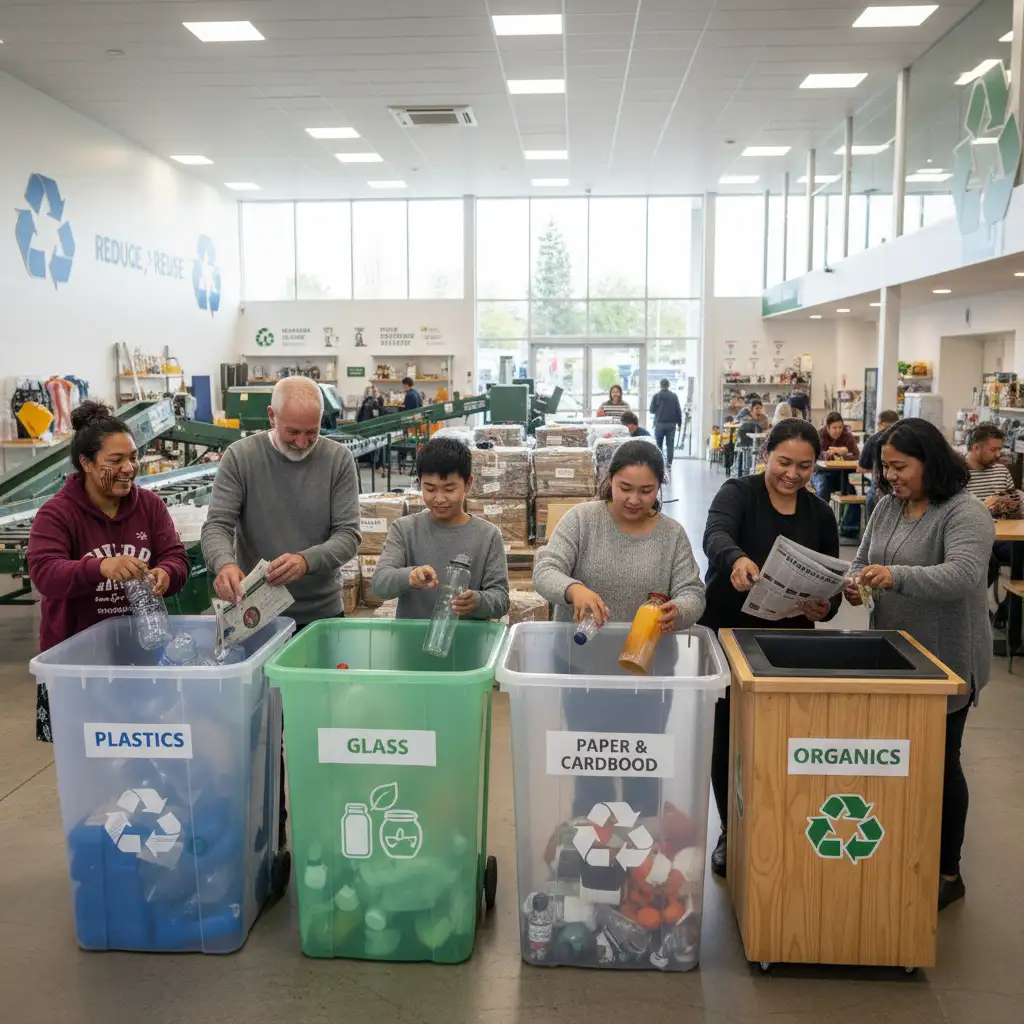Upcycling Trends in New Zealand: Waste to Worth
Discover how Aotearoa is transforming discarded items into valuable, sustainable treasures.
In a world increasingly aware of its environmental footprint, New Zealand is carving out a unique path towards sustainability. Once primarily focused on the technicalities of waste management and legislation, the conversation in Aotearoa has gracefully shifted. Today, we’re witnessing a vibrant movement that celebrates creativity, resourcefulness, and a profound respect for our planet: upcycling.
Far beyond simple recycling, upcycling elevates discarded items, giving them new life and enhanced value. It’s a testament to the Kiwi spirit of innovation and a crucial component of our transition to a more circular economy. Join us as we explore the fascinating upcycling trends in New Zealand, transforming what was once considered waste into genuine worth.
The Rise of Upcycling in Aotearoa
New Zealand, with its stunning natural landscapes, has always fostered a strong connection to the environment. This innate appreciation has fueled a growing movement away from a linear ‘take-make-dispose’ economy towards more sustainable practices. Upcycling, in particular, has resonated deeply with Kiwis’ practical, innovative nature and their love for DIY.
From local flea markets brimming with reimagined furniture to boutique stores showcasing unique handcrafted items, the spirit of transforming the discarded is everywhere. This cultural embrace is making upcycling trends in New Zealand not just a niche hobby, but a mainstream pursuit.

Why Upcycling Matters: Environmental & Economic Impact
The benefits of upcycling extend far beyond just creative expression. It plays a critical role in addressing some of New Zealand’s pressing environmental challenges, particularly waste reduction.
New Zealanders send over 3.2 million tonnes of waste to landfills annually. Upcycling directly intervenes in this process by diverting items that would otherwise contribute to this staggering figure. (Source: Ministry for the Environment NZ)
By giving items a second, higher-value life, upcycling:
- Reduces Landfill Waste: Less waste means less demand for landfill space and fewer harmful emissions.
- Conserves Resources: It lessens the need for virgin materials, saving energy, water, and raw resources used in manufacturing new goods.
- Minimises Pollution: Less manufacturing means reduced air and water pollution associated with production processes.
- Fosters Local Economies: Supports local artisans, small businesses, and community workshops.
- Encourages Creativity & Skill Development: Provides opportunities for individuals to learn new skills and express themselves.
“Upcycling is more than just a trend; it’s a mindful choice that reflects our values and contributes to a healthier planet. It’s about seeing potential where others see discard.” – A New Zealand Sustainable Living Advocate
Popular Upcycling Trends and Projects in NZ
The creativity driving upcycling trends in New Zealand is boundless. Here are some of the most prominent areas where Kiwis are turning waste into worth:
Fashion and Textiles: Reimagining Wardrobes
The fast fashion industry is a significant contributor to global waste. In NZ, a growing number of designers and hobbyists are tackling this head-on by giving old clothes and textile scraps a stylish makeover. This includes:
- Transforming old denim into bags, jackets, or patchwork items.
- Dyeing and repurposing vintage garments into modern, unique pieces.
- Creating intricate textile art or home furnishings from fabric offcuts.

Home Decor and Furniture: From Relics to Revival
Perhaps one of the most visible forms of upcycling, transforming old furniture and decor items is a passion for many Kiwis. Scouring op shops, garage sales, and even roadside finds, they breathe new life into forgotten pieces:
- Repainting and distressing old dressers, chairs, and tables.
- Converting pallets into outdoor furniture, garden planters, or shelving units.
- Turning glass bottles into unique lamps or vases.
It’s estimated that furnishing waste makes up a significant portion of what goes to landfill. Creative upcycling offers a viable alternative, extending product lifespans by decades. (Source: WasteMINZ)
Creative Arts and Crafts: Giving Waste a New Canvas
Beyond functional items, upcycling is a vibrant force in the New Zealand art scene. Artists are challenging perceptions of waste by creating stunning sculptures, intricate collages, and unique installations from materials like plastic, metal, wood scraps, and electronic waste.
Community & Commercial Upcycling Initiatives
New Zealand boasts a strong network of organisations and businesses dedicated to fostering upcycling. From community-run ‘Men’s Sheds’ that repair and repurpose wood, to social enterprises like The Sustainable Suite or Xchange Curated supporting circular design, there are numerous examples. These initiatives often offer workshops, sell upcycled goods, and provide platforms for sharing skills and resources.

The commercial sector is also catching on, with brands incorporating upcycled materials into their product lines, demonstrating that sustainability can be both profitable and desirable. This synergy between community efforts and commercial innovation is propelling upcycling trends in New Zealand forward.
How Kiwis Can Get Involved: Simple Steps to Start Upcycling
Ready to join the movement? Getting started with upcycling is easier than you think:
- Assess Your Discards: Before throwing anything away, consider its potential. Could that old jar become a planter? That worn t-shirt, a cleaning cloth or a rag rug?
- Start Small: Don’t try to transform a whole kitchen on day one. Begin with simple projects like decorating a glass bottle or repainting a small wooden box.
- Gather Tools & Materials: A basic toolkit (paint, brushes, glue, scissors, craft knives) and a willingness to experiment are often all you need.
- Seek Inspiration: Look online (Pinterest, Instagram), visit local upcycling markets, or attend workshops for ideas and techniques.
- Connect with Your Community: Many towns have community workshops, repair cafes, or online groups where you can share resources, learn skills, and find inspiration.
Embrace the journey of transformation. Every piece you upcycle is a small victory for sustainability.
The Future of Upcycling in New Zealand
The outlook for upcycling in New Zealand is bright. As consumer awareness grows and the drive for sustainable living intensifies, upcycling will only become more integrated into our daily lives and economy. We anticipate more innovative designs, increased commercial adoption, and a stronger policy framework supporting circular economy principles.
The journey from technical waste management to a broad, consumer-led sustainable lifestyle is exemplified by the dynamic and creative world of upcycling trends in New Zealand: Waste to Worth. It’s a journey fueled by ingenuity, community spirit, and a deep-seated desire to protect Aotearoa for future generations.
Frequently Asked Questions (FAQ)
What is the difference between upcycling and recycling?
Recycling breaks down waste materials to be reused in new products, often reducing the quality of the material in the process (e.g., plastic bottles into park benches). Upcycling, on the other hand, transforms discarded items into products of higher value, quality, or environmental worth, without breaking them down to their base components.
Why are upcycling trends growing in New Zealand?
Upcycling is gaining popularity in New Zealand due to increased environmental awareness, a national push for waste reduction, the inherent Kiwi spirit of DIY and innovation, and a desire for unique, custom-made items over mass-produced goods. It aligns perfectly with the country’s sustainable lifestyle goals.
Where can I find materials for upcycling in NZ?
Excellent sources include op shops (thrift stores), garage sales, local community waste exchange centres, building material salvage yards, online marketplaces like Trade Me or Facebook Marketplace (free sections), and even items already in your home or those destined for the curb on rubbish day. Many local councils also have resource recovery centres.
Are there upcycling workshops or communities in New Zealand?
Absolutely! Many communities across New Zealand offer upcycling workshops, repair cafes, and ‘Men’s Sheds’ where you can learn skills and connect with like-minded individuals. Search for local community centres, sustainable living groups, or ‘maker spaces’ in your area. Online communities are also thriving.
References/Sources
- Ministry for the Environment NZ. (Various reports on waste and circular economy initiatives). Retrieved from environment.govt.nz
- WasteMINZ. (Industry insights and data on New Zealand’s waste management sector). Retrieved from wasteminz.org.nz
- Sustainable Business Council NZ. (Publications and case studies on sustainable practices in NZ businesses). Retrieved from sbc.org.nz
- Local Community Upcycling Workshops & Repair Cafes (various locations across NZ).
- Academic studies on circular economy adoption in small island nations (e.g., research from University of Auckland, Victoria University of Wellington).

